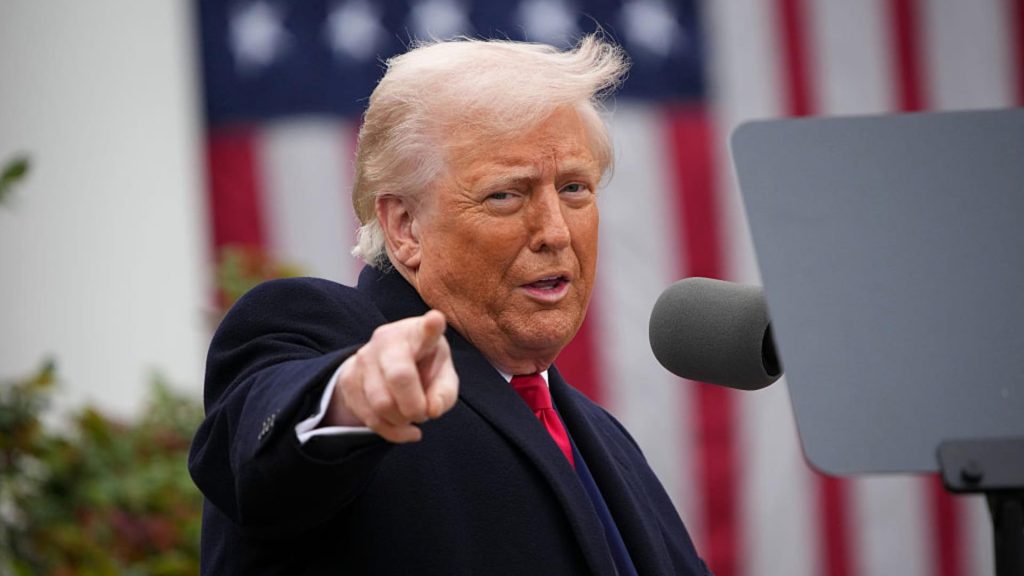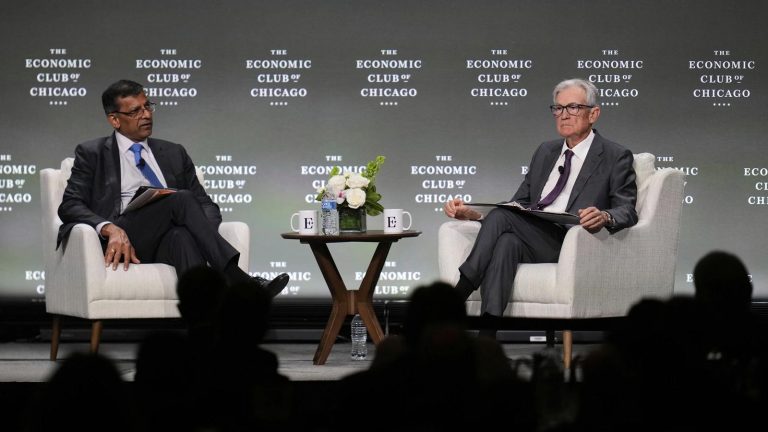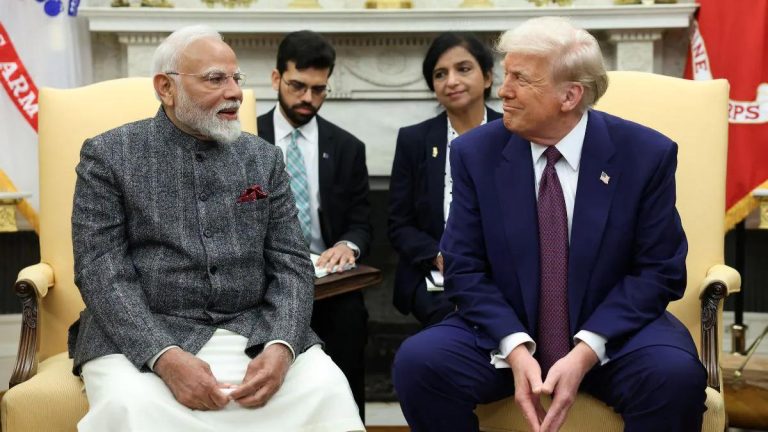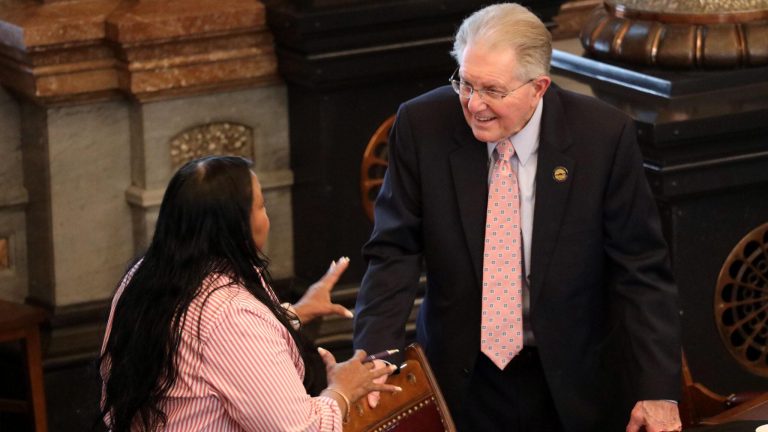
Tariff Turmoil Sparks Fears of Imminent U.S. Recession | Image Source: www.cnbc.com
WASHINGTON, D.C., April 7, 2025 – After months of uncertainty, volatility and dramatic changes in US trade policy, Wall Street is at a precarious crossroads. Despite a 90-day temporary reprimand on many of the controversial tariffs introduced by President Donald Trump, economic strategists and market analysts warn that the damage can already be done. The choir leader is Peter Berezin, the world’s leading strategy for BCA Research, who constantly warned that Trump’s aggressive pricing strategy could trigger a total recession.
While markets have responded positively to Trump’s partial tariff break, Berezin remains motionless. In fact, it doubled its forecasts, claiming that the structural effects of tariffs, particularly in China, remain intact and powerful. According to Berezin, short-term relief will not reverse the destruction of long-term demand caused by uncertainty in trade policies and primary consumption expenditure.
Why does Berezin think a recession is inevitable?
Berezin, known for calling market movements with unbridled precision, argues that the economy is about to fall. According to him, the recent strength of business and labour market income indicators masks a deeper weakness. According to his analysis, a significant part of economic activity at the end of 2024 results from the acceleration of business and consumer purchases to avoid higher tariffs. This phenomenon – nicknamed “first line” – has created a temporary peak of demand that is now rapidly dissipating.
“We had this time when people bought things to advance prices,” Berezin explained to Business Insider. “Now it will be the opposite – ‘in direct waiting’, where people delay shopping in the hope that prices will fall or prices will fall.” As the purchasing freeze expands, consumer spending – the engine of the US economy - could stop, potentially leading to redundancies, lower investment and weaker demand in a cycle of self-strengthening.
Q: How does Berezin’s scenario differ from mainstream views?
A: While other analysts are still predicting modest growth, Berezin predicts that the United States may already be entering a slight recession, with unemployment expected to increase and business income expected to decline sharply.
What is at the heart of Trump’s trade policy?
The confusion and concern stem in part from the inconsistency of Trump’s objectives. According to Berezin, the administration is trying to use tariffs as a short-term trading tactic and a long-term revenue source, which it considers fundamentally incompatible. ”If you use rates as a trading tool, or use them to generate revenue and push businesses to move. You can’t do both,” said Berezin Business Insider.
Trump justified tariffs as a means of correcting trade imbalances, bringing manufacturing to US soil and reducing dependence on foreign supply chains. However, Berezin sees this logic so deeply imperfect. “Trying to eliminate the US trade deficit would essentially be an explosion of the financial system,” he warned. “You do not increase total production – you will only reallocate resources from high productivity sectors to the lowest, such as textiles and footwear. »
Q: Why does Berezin call the tariff goals contradictory?
A: It submits that while companies avoid tariffs by relocating production to the United States, tariffs cease to generate revenues, making them ineffective as a financing tool. This undermines both objectives.
Wall Street begins to align with Berezin’s pessimism
Berezin’s not alone anymore. Goldman Sachs, UBS, JPMorgan Chase and TS Lombard recently reduced their GDP forecasts, citing increasing uncertainty, high inflation and consumer confidence. Goldman, in particular, now sees 45% of the chances of recession – almost a coin launch – while JPMorgan projects GDP by recruiting -0.3% and unemployment by jumping to 5.3%.
UBS adds that the economy did not fire on all cylinders even before tariffs, suggesting that a negative shock like this could trigger deeper systemic weaknesses. ”The expansion didn’t shoot all the cylinders to start,” writes Jonathan Pingle of UBS. “A big negative shock could trigger other negative feedback links. “
Q: How are firms like Goldman Sachs responding?
A: Reduce growth expectations and increase the likelihood of recession. Goldman now expects GDP growth of only 0.5% and sees basic inflation stay well above the Fed’s 2% target.
How is the Federal Reserve positioned in this environment?
The President of the Federal Reserve Jerome Powell took a cautious position, emphasizing an approach to wait and see interest rate changes. While the CME Group has four tariff reductions per year, most analysts believe that the Fed will be maintained until June at the earliest. With the flow and inflation markets still above target, the central bank balances tensions, which facilitates growth, but keeps an eye on overheating.
Wrightson’s ICAP points out that despite the deteriorating financial situation and market volatility, the Fed is unlikely to react quickly unless there is a clear systemic malfunction. “We cannot exclude short-term relief,” said the company, “but it doesn’t seem to be the most likely result yet
Q: Will the Fed cut rates soon?
A: Not immediately. The Fed closely monitors the data and will probably wait until June before taking action, unless market malfunction strengthens your hand.
Investor strategy in full uncertainty
With foiled stock markets and deteriorating economic data, investors are looking for safe shelters. Berezin suggests reducing exposure to cyclical and growth stocks, rather than focusing on defensive assets such as gold, consumer commodities, and possibly US treasures. “Gold is a cover against political uncertainty and inflation. Consumer commodities consistently yield during the recession. And once inflation is reached, bonds will be attractive again,” he told Yahoo Finance.
Interestingly, much of Slamp’s recent losses; P 500 came from a handful of megacap technology names – the so-called “Magnificent Seven”. The market in the broad sense has remained relatively stable, which Berezin considers a warning sign: the risk of recession has not yet been entirely costly.
Q: What sectors does Berezin favor now?
A: Gold, consumption staples, and finally obligations. It is prudent in actions, particularly high-growth actions, until assessments are adjusted to reflect the risks of recession.
Up to which point the S plagaamp; P 500 Fall?
Berezin continues to maintain a year-end target in contravention of 4,450, well below the previous average of 6,500 Wall Street. In his view, equity assessments remain too high given the deteriorating macroeconomic context. Its prognosis includes two critical assumptions: multiple expected gains fall to 17 (about 21) and business revenues decrease by 10%.
“A fall below 4,200 would justify an overweight of shares,” Berezin told MarketWatch, noting that while he is a bear, he sees a floor where value emerges. “There’s always a price you want to be a buyer at – this time it’s no different.”
Q: Is it time to buy stocks?
A: Not yet, according to Berezin. He believes that investors should wait until Slamp; P 500 falls below 4,200 before considering a more aggressive position in the actions.
Could a policy change be possible? Save the economy?
Berezin remains cautiously open to the possibility that an acute political axis can avoid the worst results. “The good news is that this crisis is driven by politics,” he said. “It can be reversed, at least in part, by changing policy.” He liked the situation in 2001, while a slight recession had again led to a drop of almost 50% in shares. Unlike 2008, there are no massive structural imbalances that take years to resolve.
But this window is shrinking. If Trump doubles with tariffs, especially against key trading partners like China, the chances of a prolonged decline increase considerably. As Morgan Stanley’s Seth Carpenter pointed out in a customer note, “the escalation of the tariff increases the risk of recession. A US recession would also mean a global recession. »
Q: Is there hope for a policy U-turn?
A: Yes, but it must happen soon. The longer the tariffs, the greater the damage and the more difficult it will be to reverse the economic dynamics.
Berezin summarized it better in a recent customer rating: “No matter how bad the news is, there is a price you want to be a buyer at. This time it’s no different, but the price isn’t there yet.”



